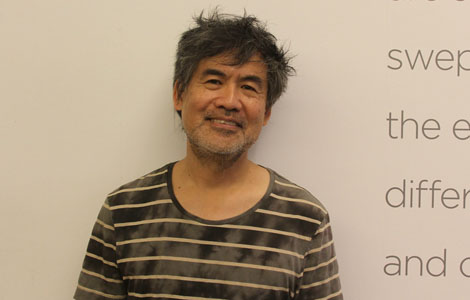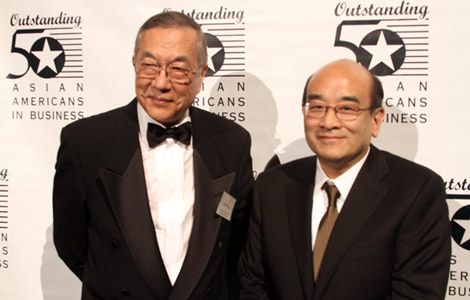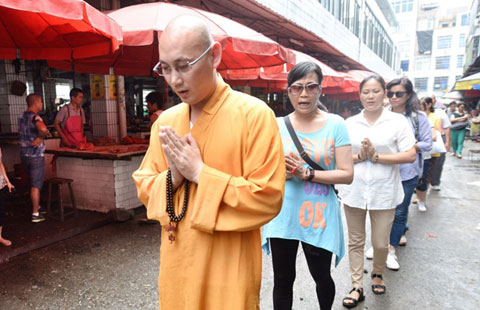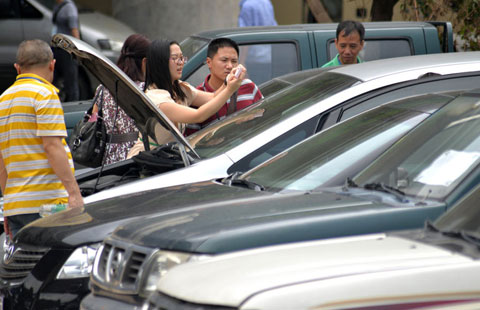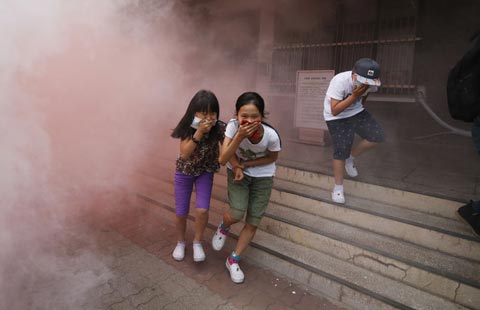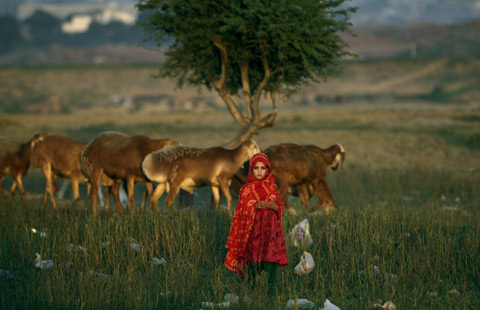Baby names reflect China's history
Updated: 2014-06-24 09:02
(chinadaily.com.cn)
|
||||||||
|
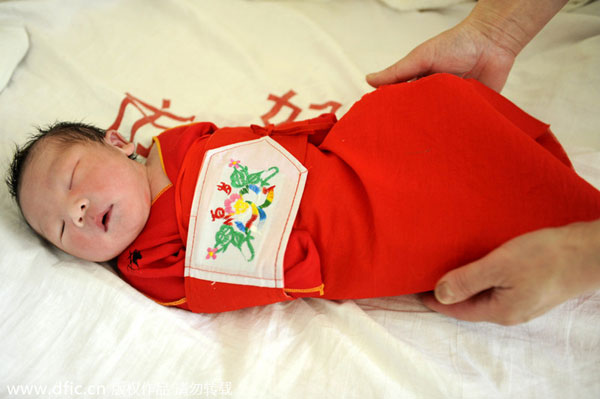 |
| A newborn baby dressed by his parents at a hospital in Shenyang, Northeast China's Liaoning province on March 20. Chinese parents often seem to be looking to major events for inspiration for the names of their babies. [Photo/IC] |
Historical books may offer details concerning the different stages since the founding of the People's Republic of China in 1949 – but you can also learn something from Chinese names.
Chinese parents often seem to be looking to major events – or historical milestones - for inspiration for the names of their babies – such as Jian'guo, which refers to the establishment of the People's Republic, and more recent popular names such as Hexie ("harmonious society") and Aoyun ("Olympics").
More than 960,000 Chinese share the name Jian'guo, including about 24% who were born between 1949 and 1959, according to data from the National Citizen Identity Information Center (NCIIC). This name was rarely given to newborns before 1949.
From 1950 to 1960 there was a surge in Chinese names representing the new China and people's hopes for a prosperous country, including names such as Jianhua (which has a similar meaning to Jianguo) and Guangqiang ("strong country").
In addition, about 60% of Chinese with the name Minzhu ("democracy") were born in the 1950s.
During the Korean War (1950-1953), Chinese people often chose names to reflect the conflict, as tens of thousands of babies were named Yuanchao ("aid the Korean people"), Kangmei ("resist US aggression") and Weiguo ("guard China's territory against infringement").
A total of 493 Chinese people sharing the family name Zhang were given the name Yuanchao – and nearly 90% were born in the 1950s. Zhu De, the former commander in chief of the Chinese People's Liberation Army, also chose "Yuanchao" for his eldest grandson.
In the period of 1966 to 1976, Chinese parents showed their loyalty to the "revolution" by giving names such as Weihong (which literally means "protect red" – meaning the revolution), Weidong (literally meaning "protect Dong" which refers to Chairman Mao Zedong) and Xuenong ("learn from the peasants"). Some new babies were also named Wenge, which means "cultural revolution."
The pool of Chinese names became more varied from 1978, when China initiated its policy of reform and opening-up. And, since the start of the one-child policy in the 1980s, parents also sometimes abandoned the traditional naming pattern of two or three characters in one name – and instead used four characters.
This reflects the parents' aim to have a name for their only child which contained the family name of both the father and mother – rather than only the father's family name.
A new naming trend began in 2001 following China's successful bid to host the Olympics in 2008, with about 31,000 infants named Shen'ao ("bid for the Olympics") or Aoyun ("Olympics").
In 2008, a total of 4783 babies were named Aoyun.
But the popularity of children's names connected with national events means that many people in China share the same names – especially as many Chinese people also share a small number of family names.
In an attempt to help their child stand out for the crowd, one Chinese couple tried to name their baby "@" saying the symbol sounds like "love him" in Mandarin.
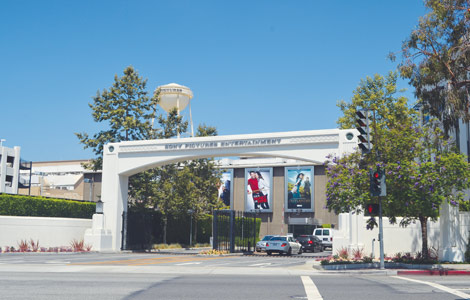
 Fosun invests in studio to get Hollywood's know-how
Fosun invests in studio to get Hollywood's know-how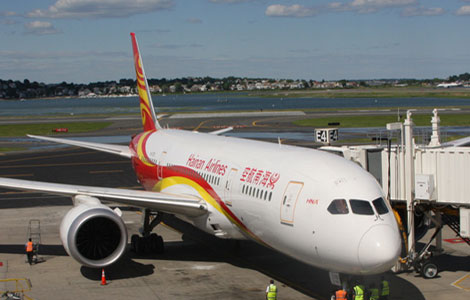
 Beijing, Boston are just 13 hours apart
Beijing, Boston are just 13 hours apart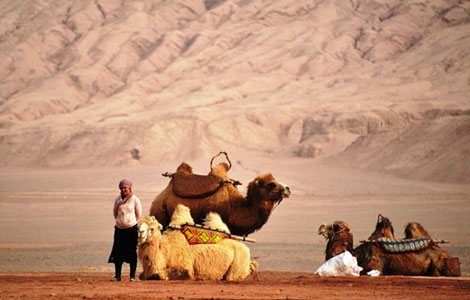
 UN list adds Silk Road, Grand Canal
UN list adds Silk Road, Grand Canal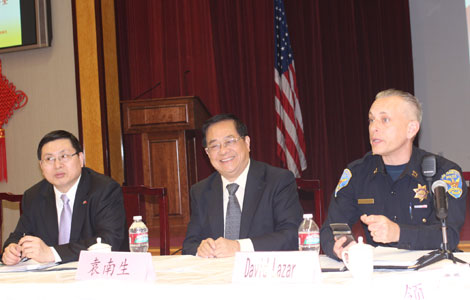
 Chinese tourists advised to play it safe
Chinese tourists advised to play it safe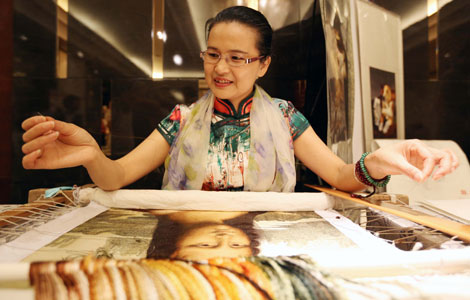
 Top Chinese artists featured on Mall
Top Chinese artists featured on Mall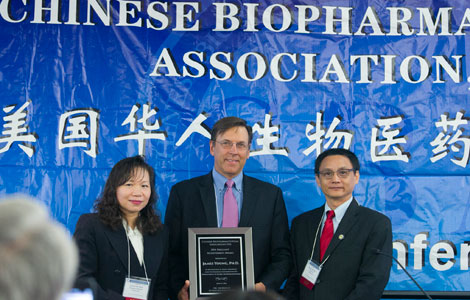
 Conference targets China, US biopharma ties
Conference targets China, US biopharma ties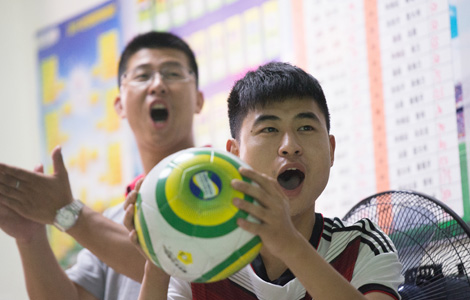
 World Cup ignites online match betting
World Cup ignites online match betting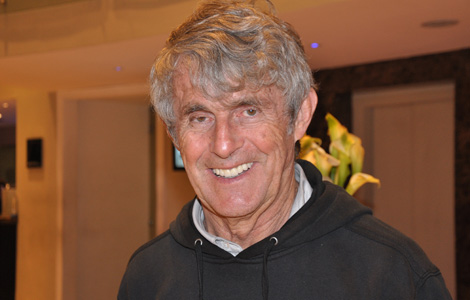
 Giving Chinese soccer a boost
Giving Chinese soccer a boost
Most Viewed
Editor's Picks

|

|

|

|

|
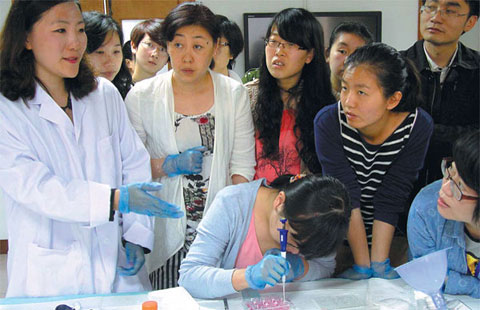
|
Today's Top News
Criticism by ex-US official dismissed
PLA official rips Tokyo's 'historical distortions'
32 terror groups busted in Xinjiang
Chinese paper plant to employ 2,000 by 2020
China hits the Western operatic 'High C'
Neighboring countries urged not to stir tensions
Criticism by ex-US official dismissed
Roughshod over China's rights
US Weekly

|

|
